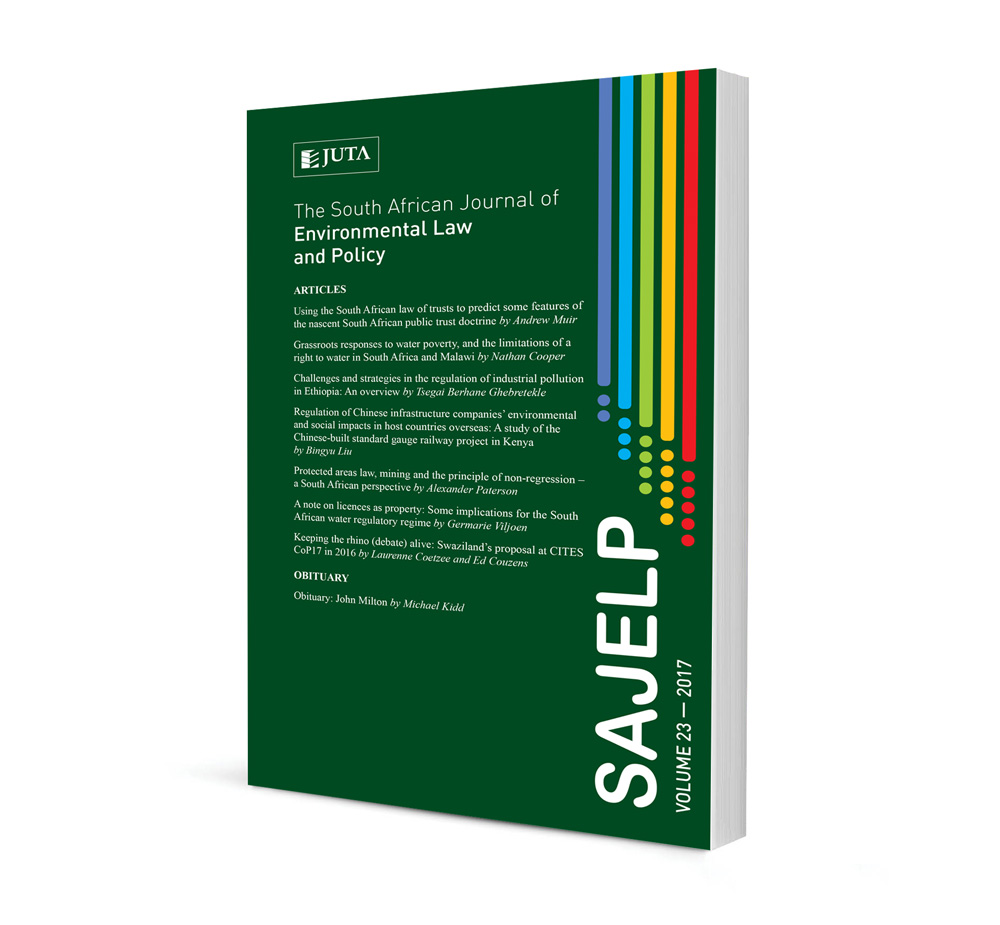The judiciary’s role in shaping urban space in South Africa as per the Sustainable Development Goals

The judiciary’s role in shaping urban space in South Africa as per the Sustainable Development Goals
Authors Anél du Plessis
ISSN: 2616-8499
Affiliations:
Source: South African Journal of Environmental Law and Policy 2018, p. 5 – 44
Abstract
The international community sees cities taking the global development agenda forward in the coming years. The recently adopted Global Sustainable Development Goals (SDGs) include a distinct goal dedicated to cities, SDG 11, complemented by the subsequent release of the United Nations’ New Urban Agenda (2016). While these global policy developments and urbanisation itself are celebrated for their potential to help make cities more prosperous, many cities of the world have been described as being ‘grossly unprepared for the multidimensional challenges associated with urbanisation.’ Scholars from disciplines such as urban geography, planning, public administration, political theory and sociology continue to grapple with this complexity in the global north and south. For decades, cities in South Africa have also been growing unsustainably. In response to some of these challenges, the national government adopted the White Paper on Local Government (1998) and subsequently a number of national local government laws and policies. The premise is that the South African government is committed in its entirety to the pursuit of safe, sustainable, resilient and inclusive cities and that this promise translates into a complex range of responsibilities for the national, provincial and local authorities as well as the three branches of government. These responsibilities are not clearly defined, and even if they were, legally relevant conflict is bound to arise at some point for the courts to resolve. This article questions the role of the courts in South Africa in deciding matters that intersect with issues of urban safety, sustainability, resilience and/or inclusivity. The analysis is done with reference to a selection of recent judgments where the courts had to pronounce on municipal governing authority, urban development, municipal service delivery and the notion of accountable and responsive local government.